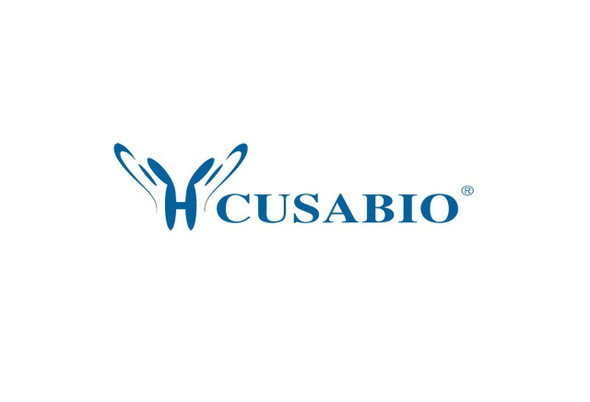Cusabio Rattus norvegicus Recombinants
Recombinant Rat Dipeptidyl peptidase 4 (Dpp4), partial | CSB-EP007139RA
- SKU:
- CSB-EP007139RA
- Availability:
- 3 - 7 Working Days
Description
Recombinant Rat Dipeptidyl peptidase 4 (Dpp4), partial | CSB-EP007139RA | Cusabio
Alternative Name(s): Bile canaliculus domain-specific membrane glycoprotein Dipeptidyl peptidase IV Short name: DPP IV GP110 glycoprotein T-cell activation antigen CD26 CD_antigen: CD26 Cleaved into the following 3 chains: Dipeptidyl peptidase 4 membrane form Alternative name(s): Dipeptidyl peptidase IV membrane form Dipeptidyl peptidase 4 soluble form Alternative name(s): Dipeptidyl peptidase IV soluble form Dipeptidyl peptidase 4 60KDA soluble form Alternative name(s): Dipeptidyl peptidase IV 60KDA soluble form
Gene Names: Dpp4
Research Areas: Immunology
Organism: Rattus norvegicus (Rat)
AA Sequence: SMVLGSGSGVFKCGIAVAPVSRWEYYDSVYTERYMGLPTPEDNLDHYRNSTVMSRAENFKQVEYLLIHGTADDNVHFQQSAQISKALVDAGVDFQAMWYTDEDHGIASSTAHQHIYSHMSHFLQQCFSLR
Source: E.coli
Tag Info: N-terminal 6xHis-SUMO-tagged
Expression Region: 638-767aa
Sequence Info: Partial
MW: 30.7 kDa
Purity: Greater than 90% as determined by SDS-PAGE.
Relevance: Cell surface glycoprotein receptor involved in the costimulatory signal essential for T-cell receptor (TCR)-mediated T-cell activation. Acts as a positive regulator of T-cell coactivation, by binding at least ADA, CAV1, IGF2R, and PTPRC. Its binding to CAV1 and CARD11 induces T-cell proliferation and NF-kappa-B activation in a T-cell receptor/CD3-dependent manner. Its interaction with ADA also regulates lymphocyte-epithelial cell adhesion. In association with FAP is involved in the pericellular proteolysis of the Extracellular domain matrix (ECM), the migration and invasion of endothelial cells into the ECM. May be involved in the promotion of lymphatic endothelial cells adhesion, migration and tube formation. When overexpressed, enhanced cell proliferation, a process inhibited by GPC3. Acts also as a serine exopeptidase with a dipeptidyl peptidase activity that regulates various physiological processes by cleaving peptides in the circulation, including many chemokines, mitogenic growth factors, neuropeptides and peptide hormones. Removes N-terminal dipeptides sequentially from polypeptides having unsubstituted N-termini provided that the penultimate residue is proline.
Reference: "Crystal structures of DPP-IV (CD26) from rat kidney exhibit flexible accommodation of peptidase-selective inhibitors."Longenecker K.L., Stewart K.D., Madar D.J., Jakob C.G., Fry E.H., Wilk S., Lin C.W., Ballaron S.J., Stashko M.A., Lubben T.H., Yong H., Pireh D., Pei Z., Basha F., Wiedeman P.E., von Geldern T.W., Trevillyan J.M., Stoll V.S.Biochemistry 45:7474-7482(2006).
Storage: The shelf life is related to many factors, storage state, buffer ingredients, storage temperature and the stability of the protein itself. Generally, the shelf life of liquid form is 6 months at -20?/-80?. The shelf life of lyophilized form is 12 months at -20?/-80?.
Notes: Repeated freezing and thawing is not recommended. Store working aliquots at 4? for up to one week.
Function: Cell surface glycoprotein receptor involved in the costimulatory signal essential for T-cell receptor (TCR)-mediated T-cell activation. Acts as a positive regulator of T-cell coactivation, by binding at least ADA, CAV1, IGF2R, and PTPRC. Its binding to CAV1 and CARD11 induces T-cell proliferation and NF-kappa-B activation in a T-cell receptor/CD3-dependent manner. Its interaction with ADA also regulates lymphocyte-epithelial cell adhesion. In association with FAP is involved in the pericellular proteolysis of the extracellular matrix (ECM), the migration and invasion of endothelial cells into the ECM. May be involved in the promotion of lymphatic endothelial cells adhesion, migration and tube formation. When overexpressed, enhanced cell proliferation, a process inhibited by GPC3. Acts also as a serine exopeptidase with a dipeptidyl peptidase activity that regulates various physiological processes by cleaving peptides in the circulation, including many chemokines, mitogenic growth factors, neuropeptides and peptide hormones. Removes N-terminal dipeptides sequentially from polypeptides having unsubstituted N-termini provided that the penultimate residue is proline.
Involvement in disease:
Subcellular Location: Dipeptidyl peptidase 4 soluble form: Secreted, Note=Detected in the serum and the seminal fluid, SUBCELLULAR LOCATION: Cell membrane, Single-pass type II membrane protein, Apical cell membrane, Single-pass type II membrane protein, Cell projection, invadopodium membrane, Single-pass type II membrane protein, Cell projection, lamellipodium membrane, Single-pass type II membrane protein, Cell junction, Membrane raft
Protein Families: Peptidase S9B family, DPPIV subfamily
Tissue Specificity: Expressed in bile ducts and other epithelial brush borders (small intestine, kidney, colon, pancreatic duct); acinar structures in salivary glands; endothelial structures and T cell areas in thymus, spleen and lymph node.
Paythway:
Form: Liquid or Lyophilized powder
Buffer: If the delivery form is liquid, the default storage buffer is Tris/PBS-based buffer, 5%-50% glycerol. If the delivery form is lyophilized powder, the buffer before lyophilization is Tris/PBS-based buffer, 6% Trehalose, pH 8.0.
Reconstitution: We recommend that this vial be briefly centrifuged prior to opening to bring the contents to the bottom. Please reconstitute protein in deionized sterile water to a concentration of 0.1-1.0 mg/mL.We recommend to add 5-50% of glycerol (final concentration) and aliquot for long-term storage at -20?/-80?. Our default final concentration of glycerol is 50%. Customers could use it as reference.
Uniprot ID: P14740
HGNC Database Link: N/A
UniGene Database Link: UniGene
KEGG Database Link: KEGG
STRING Database Link: STRING
OMIM Database Link: N/A










